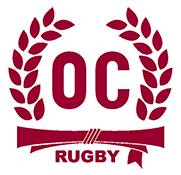Source: 1982 Club Annual Report
1981/82 was not, when compared to the preceding seasons, one of the club's better years. The high hopes which we held in October were not fulfilled and it was disappointing for many of us that no team made the final four. The major consolations were in individual performances, both the sustained high level of achievement of some of our stalwarts and the continuing development of some of our younger players.
The first team did not win as often as expected, yet its final position of ninth belied its true capabilities and to some degree its performances. When they won, they won well but when they lost, they often did so narrowly. We were four runs short against Gepps Cross and only 12 behind Pooraka, the eventual Premiers. The side's fighting spirit was exemplified well by an enthralling match against Ingle Farm where we came from behind in each innings to finish level with two wickets in hand; technically a tie, but for us a moral victory.
The bowling, headed by Steven Schu1ze.and Phil Glatz, generally gave us a prospect of victory but the batting often failed to carry us past the winning post. There were good innings from Phil Glatz, skipper Dave Harford, Mike Roder (a much improved player), Jerry Goodenough and Brenton Hartfield of the regular players but all too often they lacked support from their colleagues. The fielding was generally good but in two vital games, it fell below this standard.
The second team depended heavily on three players. Geoff Steuart was very consistent and scored 319 runs, an outstanding achievement, captain Mike Sheridan wasn't far behind, while Chris Woodlands in only six games took 36 wickets, including a personal best and club record of 9 for 33 in one innings. Of the younger players, Andy Short and Pat O'Sullivan with the bat and Bill Reid, a very promising opening bowler, pulled their weight, while Dave Cartwright's experience often proved an asset.
The third side perhaps inevitably, suffered from a high turnover of players as unavailability, injury and promotion made it almost impossible to achieve a settled and balanced eleven. Even so, they came closest to the finals of all our teams. Tom Rimmington and Max Collins bowled productively and Phil Robins, coaxed away from the bowling green for two games, showed that his old foxiness remained. There were a number of good innings played, but these were often a prelude to promotion to higher grades in an attempt to remedy batting deficiencies.
Off the field, a number of successful social functions were held, including a dinner at the clubrooms, a progressive dinner, and of course, the end of season presentation dinner at the Feathers. Peter Schwerdt, Malcolm Knight, Dave Sladden and Dave Harford worked hard to organise these events.
The club Newsletter continued throughout the summer, edited by Malcolm Knight who did much first rate work behind the scenes. This helped to foster club spirit, and perhaps the writing skills of some of those who were conscripted to write match reports, as well as strengthening our links with the Rugby Club.
John Turner

